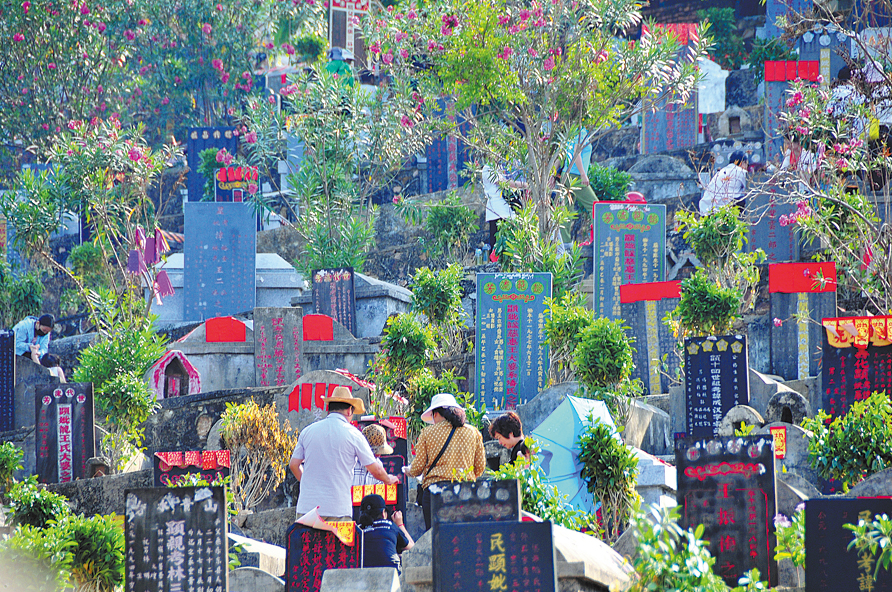Brushing up on history of Tomb Sweeping Day


Over the centuries the festival has absorbed other traditions until taking its current form
The famed Tang Dynasty (618-907) poet Du Mu wrote that a "drizzling rain falls like tears on the Mourning Day, the mourner's heart is going to break on his way".
To most people these sentiments reflect what the Tomb Sweeping Festival, or Qingming, is all about; honoring ancestors and dealing with the emotional loss of loved ones.
However, the festival's history spans thousands of years and has gone through many changes and absorbed other traditions along the way.
It is the only Chinese public holiday that is also one of the 24 Chinese solar terms, which follow the cycles of nature. Qingming falls on the fourth or fifth day of April, when spring begins and the weather becomes warm.
Ancient texts have depicted the rebirth that arrives with spring. Philosophical writings from Huainanzi (Master Huainan) during the Western Han Dynasty (206 BC-AD 24), state, "fifteen days after the Spring Equinox …the clear and bright wind arrives."
Another line passed down from the lost book Suishi Baiwen says, "all growing things are clean and pure at this time, hence the name qingming".
























